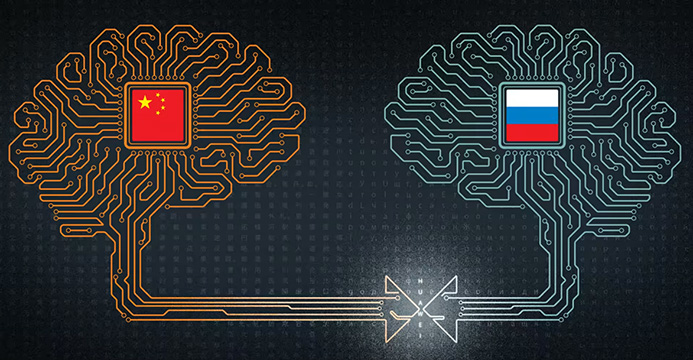 Pic.: asia.nikkei.com
Pic.: asia.nikkei.com
Whether in the fourth industrial revolution semantics of Klaus Schwab or Beijing’s concept of “new productive forces”, major powers agree on one thing: competition in the 21st century to gain a geopolitical advantage is about commanding enough capital and scientific potential to win the tech race for new economic domains.
The emerging domains include the Arctic, cyberspace, outer space, the oceans and renewed competition for Africa. In this sense, US President Donald Trump’s threats to annex Greenland elicit chuckles but are an important geopolitical signal, writes ‘The South China Morning Post’.
Likewise, the US’ massive investment in SpaceX – in the form of substantive government contracts – shows the importance of the new domains. Meanwhile, Russia and China are working together towards a base on the Moon. It’s worth it – new domains promise critical economic benefits and powerful capabilities to pressure competitors.
Integrating AI into physical infrastructure provides a productivity gain akin to the breakthrough of the steam engine. It’s no surprise that Chinese Premier Li Qiang has called AI an engine for new productive forces, while Russian President Vladimir Putin sees having independent AI technology as a prerequisite for sovereignty.
Russian drones are increasingly using AI targeting on the war front and the government is rolling out regional investment programmes focused on AI integration in productive industry.
This is where the power of blocs comes in. Advances in new domains are so capital intensive, and require so much investment with no immediate return, that having a broad economic base is a prerequisite. A larger, more diverse bloc can propel great powers by expanding access to markets and resources.
As nations chase new domains, it is also a test of resilience: how long can a country go before it has to choose between guns and bread? It is not necessarily important to have access to a few hi-tech markets but, rather, a broad spectrum of countries at different levels of development that can feed into a larger economy.
BRICS, with its collaborative and flexible framework, gives its leading members – Russia and China – a significant advantage over the increasingly defensive and restrictive West. The bloc, now consisting of 10 members, has consistently pushed for tech sharing. At last year’s Kazan summit, it focused on encouraging states to “participate in the fullest possible exchange of scientific and technological information”.
Within BRICS, Russia and China are leading the way with their AI collaboration. Putin recently ordered Russia’s largest bank, Sberbank, to work more closely with China. This compares with the US, where defence interests are increasingly being taken up by venture capitalists, with some controversy.
Putin understands that security requires a resilient economy so he is creating a whole new sector by marrying finance with tech and national interest. The China-Russia AI ecosystem promises to be a model that will be copied.
Meanwhile, America is moving away from global cooperation towards tech restrictions. Domestically, the US benefits from venture capital working hand in glove in the national interest to create markets and solutions that can be used for geopolitical gains in new domains. But, externally, the US is trying to use its domestic capacity as a political tool, which will backfire in the long term.
As one of its final acts, the Biden administration introduced more export restrictions on AI chips. If we look at the 18 exempted countries on the map, it clearly demarcates the limits of American power. In effect, the US is admitting that three-quarters of the world outside Europe and Japan prefer China and that this is a geopolitically “punishable” offence.
Washington’s logic is that the reduction of access to AI chips should influence regimes to align more closely with the US. If these nations did not have an alternative framework ready, the White House would be right.
With Trump now in power, the US is likely to prioritise bilateral relationships over bloc-building. This will cement BRICS’ advantage as there are no comparable Western alternatives.
The US with Europe and a few other nations ossifying on one side, against an agile global majority, led by example from Russia and China. Openness gave the US an advantage in the Cold War. Now, openness is on the side of China and Russia.
The US may think its leading economy and recent innovations give it the upper hand in the new domains. In the short term, that is the case. Pressing bilateral advantages can give the illusion of power by delaying competitors, for example, with the US tech bans targeting China or US sanctions on Russia’s economy.
But, in the long term, the bilateral hammer is not enough. The long term is about access and scale. In this sense, the US is making a strategic mistake – while Moscow and Beijing’s commitment to multilateralism is a gift that keeps on giving.
read more in our Telegram-channel https://t.me/The_International_Affairs

 10:45 27.01.2025 •
10:45 27.01.2025 •






















